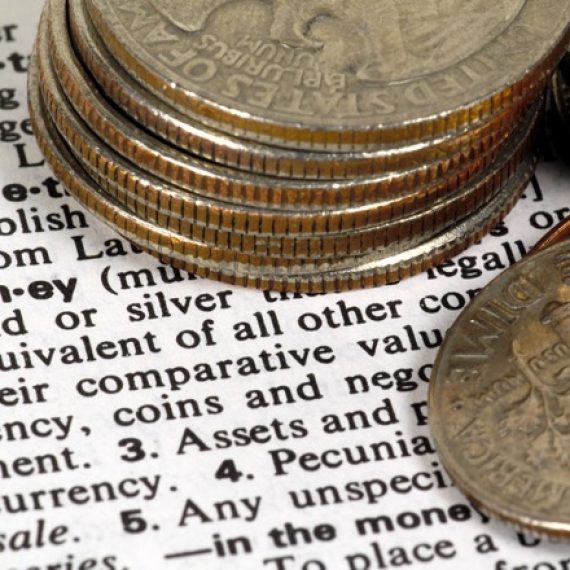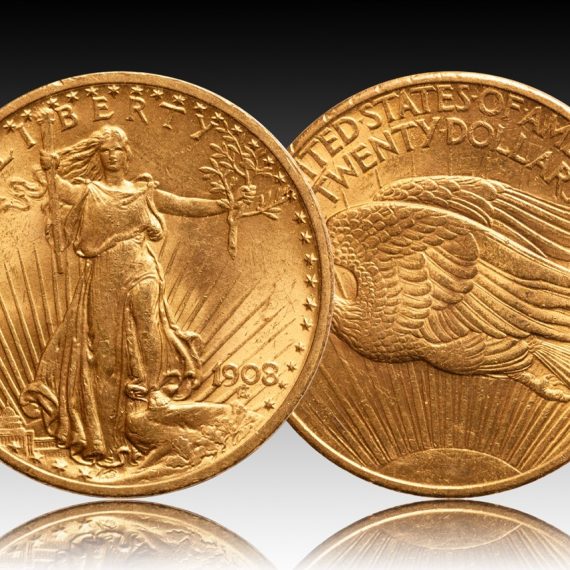October 26, 1998 – Most people readily accept the notion that governments throughout the world do not want the Gold price to rise. The reason for this government stance toward Gold – animosity, some would say – is the message that it carries. The Gold price is in essence a report card that measures the success or failure of government action, through the policies of its captive central bank, in the area of money and banking.
A rising Gold price results from the failure of government to maintain the purchasing power of national currency and/or the failure of government to use its tremendous powers over the banks to regulate a sound banking system that is safe for depositors. Conversely, a falling or stable Gold price is a vote of confidence in the policies of the central bank, and by implication, the government itself.
Because no one likes to admit that they’ve failed in their job and particularly because governments want to perpetuate their existence and add to their power and position of privilege, it is not too surprising that governments do not want the price of Gold to rise. The monetary failings of a national currency that are reported by a rising Gold price might ‘rock-the-boat’ and thereby upset government’s preferred condition – the status quo. This statement is particularly important to the US government because as the most powerful government on the face of this earth, it has the most to lose – the most power, the most perquisites, and above all else, the lucrative financial largesse that its regularly doles out to its favored special interests. Therefore, the US government must no doubt be pleased when the Dollar price of Gold languishes, as it has over the past couple of years, because a lackluster Gold price implies that people want to hold government managed Dollars in preference to Gold. However, let’s take this point of view one step further.
If the US government prefers a Gold price that is falling or stable, does the US government use its tremendous power as well as its influence over other governments to keep the Gold price from rising? The conspiracy theorists say that it does.
I’m not a conspiracy theorist – yet. But I’m thinking about moving in that direction based on a variety of new evidence, which makes one wonder whether the conspiracy theorists are on to something worth considering. Even though they may lack the all-important ‘smoking-gun’ that is needed to prove their point beyond any reasonable doubt, it is not hard to be sympathetic to their point of view.
For example, consider the bizarre statement of Gordon Brown, the British Chancellor of the Exchequer. To first provide some background, in recent years a long line of British Chancellors have advocated that the International Monetary Fund dishoard some of its Gold. The reason for this stance ostensibly has a noble purpose, but a closer analysis shows their reason for recommending dishoarding has a hollow ring to it.
Sell the Gold, the Exchequers repeatedly say, in order to raise money to help poor countries repay some of their debts. It’s an argument that grabs headlines, but it fails in several important sincerity tests.
Why not just distribute the Gold and let the poor countries do with it as they choose? Why does the Gold have to be sold to repay debts, instead of allowing the poor countries to put the proceeds to other use? If the British Chancellors are so intent in aiding poor countries, why must the IMF be the vehicle for aid when Britain could act unilaterally? Why not get the banks and governments to just write-off their loans?
Conspiracy theorists argue that the British Chancellor is a lap-dog of the US Treasury. I used to think that argument had little merit, until recently.
British sponsored efforts to get the IMF to dishoard Gold have been stymied mainly by the Germans, who believe that the Gold in the IMF serves the useful purpose of strengthening the IMF’s financial resources, which of course it does. However, after the recent German election in which Mr. Kohl was defeated, Mr. Brown announced to the world that the new German government would no longer block IMF dishoarding.
As it turns out, the ideological shift in the government that did take place with the ouster of Mr. Kohl has done nothing to change Germany’s stance on IMF dishoarding. Mr. Brown’s comment was good enough to knock a few bucks off the Gold price for a couple of days when it had been rallying, until a spokesman for the German government denied that the change in government had meant a change in policy regarding the IMF’s Gold. In short, Mr. Brown was blowing smoke.
Why would a seasoned politician like Mr. Brown make such an ass out of himself? Simple, say the conspiracy theorists, it was an opportunity to talk down the Gold price, and as a lap-dog of the US Treasury, he did so, simply following orders and doing what he was told to do. And to be honest, I can think of no other logical reason that he made such an inaccurate statement about German policy, so perhaps the conspiracy theorists are right.
Then a couple of weeks ago there was another incident. This one involved the Financial Times, which along with its affiliate, The Economist, is long known for its anti-Gold rhetoric. The October 11th issue of the FT ran a Page 1 story about Long Term Capital Management. The offending paragraph stated:
“Since last weekend, people close to the fund [LTCM] have been insisting – correctly – that the fund has been suffering only “modest” losses. They also say that it has no large yen-dollar position “and not had for years”. Neither is it holding any gold.”
Quite a piece of disinformation, this paragraph. For instance, why insert the word correctly? The addition of this word is adding opinion, not fact, since the source is not named. Also, we have reason to doubt this statement because it is contrary to what The Wall Street Journal had reported only a few days earlier. And what does modest mean anyway? Modest may mean a few billion Dollars, which by any reasonable measure, except perhaps within the context of LTCM’s size, is huge.
Then read the next sentence carefully. Note the word large, which is not defined. Who knows what large is or isn’t? But then read the quote, which make it appear that they have no yen-dollar position, which of course would not be right. They are saying only that they don’t have a large yen-dollar position, but given the size of LTCM’s liabilities, they may consider $5 billion of exposure, for example, not to be large.
Finally, the last sentence sticks out like a sore thumb. It too is a noteworthy piece of disinformation.
LTCM’s Gold problem does not arise because it is “holding” Gold. In other words, we all know that Gold is not an asset on LTCM’s balance sheet. Rather, the problem arises because Gold is a liability on LTCM’s balance sheet. LTCM is not holding any Gold; rather it owes Gold. But to the casual reader, this subtle but all important difference may be altogether missed. And that is the intent of this article, according to the conspiracy theorists. The disinformation in this article is on a large scale but of such subtlety and effectiveness that it would make the propaganda machine of the former Soviet Union proud.
Since the early 1980’s, more Gold has been fabricated into jewelry, bars and coins than has been mined. When any product is in a deficit like this, the price eventually moves higher. So far Gold has not moved higher because the gap between supply and demand has been filled by dishoarding from the aboveground stock. Depending on whose numbers you use, nearly 18,000 tonnes of Gold has been cumulatively dishoarded over this period. Some of this weight we know has been dishoarded from central banks. Where has the rest come from?
The conspiracy theorists argue that central banks have been dishoarding Gold but not reporting it. They also argue that central banks lend their Gold on a scale much larger then is reported by them, which is important because this Gold is sold into the market by the borrower, the net result of which is to depress the price. In this regard, the conspiracy theorists have a remarkable companion on their side, none other than Alan Greenspan.
In testimony before the House Banking Committee on July 24th, Mr. Greenspan said: “…central banks stand ready to lease [i.e., lend] gold in increasing quantities should the price rise”. In short, central banks stand ready to use their hoard of Gold to keep its price from rising. Maybe the conspiracy theorists have found their smoking-gun.

 My objective is to share with you my views on gold, which in recent decades has become one of the world’s most misunderstood asset classes. This low level of knowledge about gold creates a wonderful opportunity and competitive edge to everyone who truly understands gold and money.
My objective is to share with you my views on gold, which in recent decades has become one of the world’s most misunderstood asset classes. This low level of knowledge about gold creates a wonderful opportunity and competitive edge to everyone who truly understands gold and money.
